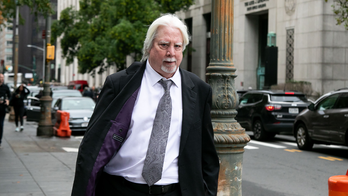
FILE - In this Sept. 15, 2013, file photo, the U.S. Capitol dome is silhouetted by the sunrise. (AP Photo/Carolyn Kaster, File)
Legislation that would prevent a 24 percent cut in payments from the federal government to reimburse doctors who accept Medicare patients faced an uncertain future early Thursday as House GOP leaders struggled to find the votes to pass the bill.
House Speaker John Boehner, R-Ohio, had said that the House would vote on the measure Thursday after announcing that he and Senate Majority Leader Harry Reid, D-Nev., had agreed on the one-year "patch" legislation, known as a "doc fix," financed by a variety of familiar cuts to health care providers. They include cuts to hospitals that treat a "disproportionate share" of uninsured patients and extending a 2 percent cut to Medicare providers under automatic budget cuts known as sequestration.
The deadline to prevent the reimbursement cuts is 11:59 p.m. Monday. When Congress has blown the deadline in the past, Medicare has dealt with the problem by simply delaying processing payments until the formula had been raised.
The bill's prospects are complicated by the House leadership's wish to consider the bill "on suspension," which would mean that the bill would require a two-thirds majority to pass, with the help of some Democratic votes. However, some lawmakers in both parties are advocating a permanent fix to the problem.
When asked if the House would consider the one-year patch legislation Thursday, a congressional aide familiar with the issue told Fox News, "That's a damn fine question. ... Members gave the Speaker an earful last night. A lot of other Members are very unhappy."
Reid was was likely to seek to speed the measure through the Senate as early as Thursday, but it would take cooperation from all 100 senators to make that happen.
If the measure does pass, it would be the 17th time Congress has stepped in with a temporary fix to a poorly designed Medicare fee formula that dates to a 1997 budget law. There is widespread support for bipartisan legislation to fix the formula, but there is no agreement on how to bear the 10-year, $140 billion cost.
"The permanent fix that's being talked about is a good fix, and there's an agreement -- bipartisan, bicameral agreement on the long-term fix," Boehner said Wednesday. "What there isn't agreement on is, `How are we going to pay for it?"'
New Senate Finance Committee Chairman Ron Wyden, D-Ore., wants to keep working on a permanent solution. He proposes using savings from lower costs for operations in Afghanistan. Republicans are demanding savings from President Barack Obama's health care law. The resulting impasse has left lawmakers little alternative other than to pass another temporary fix.
"If you just keep going with these temporary solutions, you waste time, you waste money, you threaten the access for seniors to their doctors," Wyden said. "And the reality is, the patches as they are called, they're not free either. You still have to come up with the money."
Fox News' Chad Pergram and the Associated Press contributed to this report.




